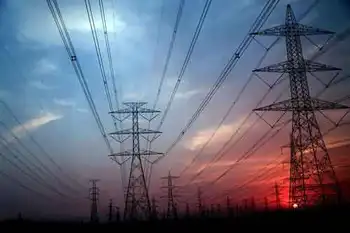Capital Power to sell 3 American plants, focus on Alberta
The facilities are Bridgeport Energy, a 520-megawatt power station in Bridgeport, Connecticut, that has been operational since 1999 Tiverton Power, a 265-megawatt power station in Tiverton, Rhode Island, that has been operational since 2000 and Rumford Power, a 265-megawatt power station in Rumford, ME, that has been operational since 2000. The transaction includes certain emissions credits.
“The transaction is consistent with our focus on enhancing Capital Power’s returns for shareholders while rebalancing risk in our portfolio,” said Capital Power President & CEO Brian Vaasjo. “The sale proceeds for the New England assets will be redeployed to reduce our merchant risk profile and provide more predictable earnings and cash flow.”
Capital PowerÂ’s merchant power activities will now be focused on Alberta. The company will continue to pursue growth in contracted power generation across North America.
“Focusing Capital Power's business is the best way to create immediate and long-term value for shareholders and balance the Company’s merchant and contracted portfolio,” said Capital Power President & CEO Brian Vaasjo. “While we will continue to pursue contracted power generation opportunities throughout North America, growth in our merchant power business and our trading activities will now be focused on North America's strongest power market, Alberta.”
“Our re-focusing reflects the fact that North American power markets have evolved over the past several years.” Mr. Vaasjo continued. “Capital Power can now pursue higher value investment opportunities in the fast-growing Alberta market. For example, we expect the Shepard Energy Centre to deliver improved returns for shareholders, and provide a combination of contracted and merchant cash flow that reduces Capital Power's portfolio risk and earnings volatility."
Capital Power will wind down its commodity and energy trading business outside Alberta before year end, closing its Toronto office immediately and its Chicago office in 2014. Energy trading and portfolio management activities will continue within Alberta. Focused teams in Alberta, Boston and San Diego will continue to pursue growth, seeking contracted development and acquisition opportunities across North America, and both merchant and contracted opportunities within Alberta.
“The Alberta merchant focus has significant implications for the organization,” said Bryan DeNeve, Capital Power's Senior Vice President Corporate Development & Commercial Services. “Our employee base and operating complexity is significantly reduced by the divestiture of the northeast U.S. plants, and resources will no longer be required to support power or gas trading in U.S. markets or the pursuit of merchant growth opportunities outside Alberta.”
“Beginning in the first quarter of 2014, we expect the overall financial impact of the business refocusing, excluding the sale of the New England facilities themselves, to reduce annual expense spending by approximately $25 million to $30 million, boost annualized earnings per share by $0.20 to $0.25 and increase cash flow per share by approximately $0.25 to $0.30, net of the trading margins that would have been expected to be earned,” said Senior Vice President & CFO Stuart Lee. “Associated with these changes, we also expect to take a restructuring charge of approximately $10 million in the third quarter.”
“Capital Power is now in a position to fully fund the remaining investment required for our 50-percent interest in the Shepard Energy Centre from proceeds from the New England sale, existing resources and future operating cash flows,” said Mr. Lee. “We expect to fund Capital Power's existing growth opportunities without further equity issuances, save for the continuing operation of our dividend reinvestment program.”
The Shepard investment adds new stable cash flows for Capital Power through a 20-year tolling agreement on 50 of the owned capacity, and contracting and hedging agreements for the 2013 to 2017 period.
“Capital Power's business will be simpler and more focused after these actions, and the right size to be competitive for the future,” Mr. Vaasjo concluded. “Our investment thesis is now clearer and easier to evaluate: Capital Power will provide investors with a stable and growing contracted cash flow base, with upside exposure to the Alberta power market, while operating a leaner core business. And we expect to provide our employees with an efficient and clearly organized company where they can grow their careers, and the opportunity to operate facilities that are industry leaders in performance and safety.”
The New England transaction is expected to close in the fourth quarter of 2013, subject to regulatory approvals and other customary closing conditions. The gross proceeds approximate the expected carrying value of the assets projected at close. As part of the transaction, Capital Power expects to take a valuation allowance against the CompanyÂ’s U.S. deferred tax assets net operating loss carry forwards that the Company will continue to retain which will negatively impact net income, partially offset by a foreign exchange gain. After closing costs, tax expense and foreign exchange gains, the Company expects to record a small loss related to the transaction.
Related News

Australia's energy transition stalled by stubbornly high demand
MELBOURNE - A more than 200% increase in installed solar power generation capacity since 2018 helped Australia rank sixth globally in terms of solar capacity last year and emerge as one of the world's fastest-growing major renewable energy producers.
However, to realise its goal of becoming a net-zero carbon emitter by 2050, Australia must reverse the trajectory of its energy use, which remains on a rising path in contrast with several peers that have curbed energy use in recent years.
Australia's total electricity consumption has grown nearly 8% over the past decade, compared with contractions over the same period of more than…





